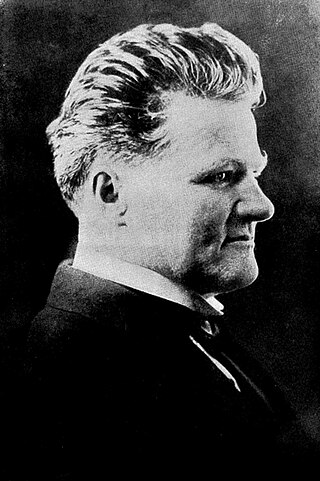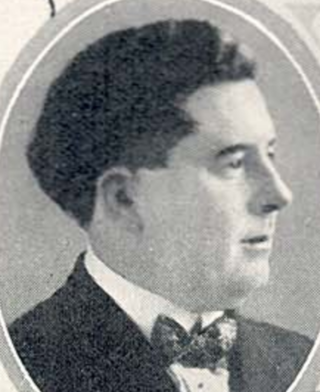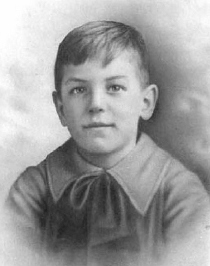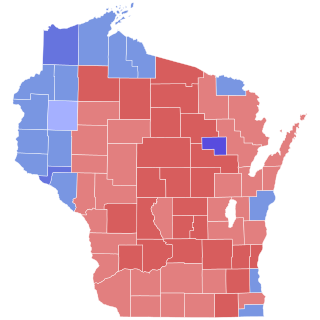Related Research Articles

Marquette University High School (MUHS) is a private, all-male, Jesuit school located in Milwaukee, Wisconsin.

Frederick RobertZimmerman was a German American politician from Milwaukee, who served as the 25th Governor of Wisconsin. He served before and after his governorship as Wisconsin Secretary of State—for a total of eighteen years in that office. He also served one term in the Wisconsin State Assembly. His son, Robert C. Zimmerman, was also Wisconsin Secretary of State from 1957 until 1975.

John Charles Schafer was an American railroad operator and Republican politician from Milwaukee County, Wisconsin. He served six terms in the U.S. House of Representatives, representing Wisconsin's 4th congressional district from 1923 to 1933, and from 1939 to 1941. Initially a member of the progressive faction of Republicans, Schafer fell out with progressive leadership after the death of U.S. senator Robert M. La Follette Sr. and then became a supporter of the stalwart faction. Late in his career, he drifted into extreme anti-communism and was a defender of the Nazi German American Bund in the lead-up to World War II.

George Washington Blanchard Sr. was an American lawyer and Republican politician from Edgerton, Wisconsin. He served one term in the U.S. House of Representatives, representing Wisconsin's 1st congressional district during the 73rd Congress (1933–1935). Prior to his election to Congress, he represented Rock County for six years in the Wisconsin Senate (1927–1933) and one term in the State Assembly (1925). Initially a member of the progressive faction of Republicans, he fell out with progressive leadership and joined the stalwart faction in 1925. Earlier in his career, he served as executive clerk to Wisconsin governor Emanuel L. Philipp.

Henry Allen Huber was an American lawyer and progressive Republican politician from Stoughton, Wisconsin. He was the 25th lieutenant governor of Wisconsin, serving from 1925 through 1933. He also served 12 years in the Wisconsin Senate and two years in the Wisconsin State Assembly representing Dane County. Earlier in his career, he also served as an executive clerk to Wisconsin governor Robert M. La Follette. He is known for introducing the first form of state unemployment insurance legislation in the United States, and is the namesake of the "Huber Law" which created Wisconsin's first work release program for state prisoners.

The Legislative Council of Nova Scotia was the upper house of the legislature of the Canadian province of Nova Scotia. It existed from 1838 to May 31, 1928. From the establishment of responsible government in 1848, members were appointed by the lieutenant governor of Nova Scotia on the advice of the premier.

William F. Quick, Sr., was an American machinist, lawyer, and Socialist politician in Milwaukee, Wisconsin. He was the Socialist Party nominee for Governor of Wisconsin in 1924 and served one term (1923–1926) in the Wisconsin State Senate, representing the Milwaukee-based 7th District. After leaving the senate, he served as a civil court judge and city attorney in Milwaukee.
Elmer H. Baumann was an American electrician from Milwaukee who served one term (1927–1928) as a Socialist member of the Wisconsin State Assembly representing Milwaukee County's 11th Assembly district.

Olaf C. Olsen was a Socialist legislator from Milwaukee. He was a law student at Marquette University Law School in 1922 when he was elected to the first of his two terms in the Wisconsin State Assembly representing the 11th Milwaukee County district.

William C. Coleman was a house painter and trade union activist from Milwaukee, Wisconsin, who served two terms as a Socialist member of the Wisconsin State Assembly.

Charles Edward Estabrook was an American educator, lawyer, eugenicist, and Republican politician from the U.S. state of Wisconsin. He was the 14th Attorney General of Wisconsin and served 14 years in the Wisconsin State Assembly, representing first Manitowoc and later Milwaukee. As a young man, he was an enlisted volunteer in the Union Army during the American Civil War. Later, he founded the Wisconsin Historical Commission and published several volumes of history of the Civil War for the Wisconsin Historical Society.

George Gauer was a printer and real estate salesman from Milwaukee, Wisconsin who served two terms as a Socialist member of the Wisconsin State Assembly.
Ben H. Mahon was a member of the Wisconsin State Assembly from 1916 to 1922 and the Wisconsin State Senate from the 1922 to his death in 1924.
Alexander R. Grant was a member of the Wisconsin State Assembly.

Arthur Louis "Buddy" Schumacher was a 9-year-old from Wauwatosa, Wisconsin, who was found murdered in 1925. His body was discovered on September 12, 1925. A couple of suspects were interviewed in connection with the case, but it remains unsolved.
Fred J. Busse was an American politician. He was a member of the Wisconsin State Assembly. Busse was elected to the Assembly in 1922 and 1924. Additionally, he was Town Chairman of Mequon, Wisconsin and a member of the County Board of Ozaukee County, Wisconsin. He was a Republican.
James J. McGillivray was a member of the Wisconsin State Assembly and the Wisconsin State Senate.

The 1978 Wisconsin gubernatorial election was held on November 7, 1978. Republican Lee S. Dreyfus won the election with 54% of the vote, winning his first term as Governor of Wisconsin and defeating incumbent Democrat Martin J. Schreiber. Bob Kasten unsuccessfully sought the Republican nomination.

The 1914 Wisconsin gubernatorial election was held on November 3, 1914. Primary elections were held on September 1, 1914.

The Fifty-Seventh Wisconsin Legislature convened from January 14, 1925, to June 29, 1925, in regular session, and reconvened in a special session in April 1926.
References
- ↑ Fred L. Holmes, ed. (1925). THE WISCONSIN BLUE BOOK 1925. Madison, Wisconsin. p. 680. Retrieved 2015-08-11.
{{cite book}}: CS1 maint: location missing publisher (link)